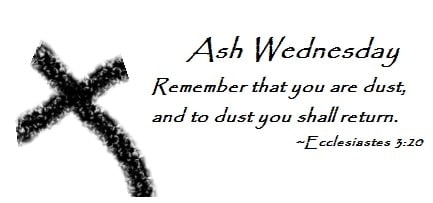In the past I have posted Part I and Part II of T.S. Eliot’s magnificent poem Ash Wednesday. You can read the entire poem here.
Today is Ash Wednesday, a day of penance, fasting, and meditation on one’s sins and mortality and the four last things: death, judgement, heaven, and hell.
Eliot’s
poem Ash Wednesday really captures
this well. The poem is comprised of six
parts, and I’ve already gone through the first two. Each year I’ll give you another part to
meditate on on this solemn day. Here is
Part III.
III
At the first turning of
the second stair
I turned and saw below
The same shape twisted on
the banister
Under the vapour in the
fetid air
Struggling with the devil
of the stairs who wears
The deceitful face of
hope and of despair.
At the second turning of
the second stair
I left them twisting,
turning below;
There were no more faces
and the stair was dark,
Damp, jaggèd, like an old
man's mouth drivelling, beyond repair,
Or the toothed gullet of
an agèd shark.
At the first turning of
the third stair
Was a slotted window
bellied like the figs's fruit
And beyond the hawthorn
blossom and a pasture scene
The broadbacked figure
drest in blue and green
Enchanted the maytime
with an antique flute.
Blown hair is sweet,
brown hair over the mouth blown,
Lilac and brown hair;
Distraction, music of the
flute, stops and steps of the mind
over the third stair,
Fading, fading; strength
beyond hope and despair
Climbing the third stair.
Lord, I am not worthy
Lord, I am not worthy
but speak the word only.
In Part III the narrator is climbing a spiral staircase and at each of the first three turns he looks down. Is the climbing of the stairwell an allusion to a journey through life to salvation? Or is it a journey through Purgatory as a purgative journey to heaven? Or something else? I don’t really know. My intuition leads me to think he is climbing the Purgatorial Mountain akin to Dante’s Purgatorio in the Divine Comedy. Dante Purgatorial Mountain requires also spiral climb. But there are no devils in Purgatory, neither in Dante’s Purgatory or in the Catholic doctrine of Purgatory. Could Eliot have been mistaken or is he suggesting one of the other possibilities?
Nonetheless,
go the Church and receive your ashes. Make
time to go before the Blessed Sacrament and meditate on your life and death and
your journey hopefully to God.


No comments:
Post a Comment